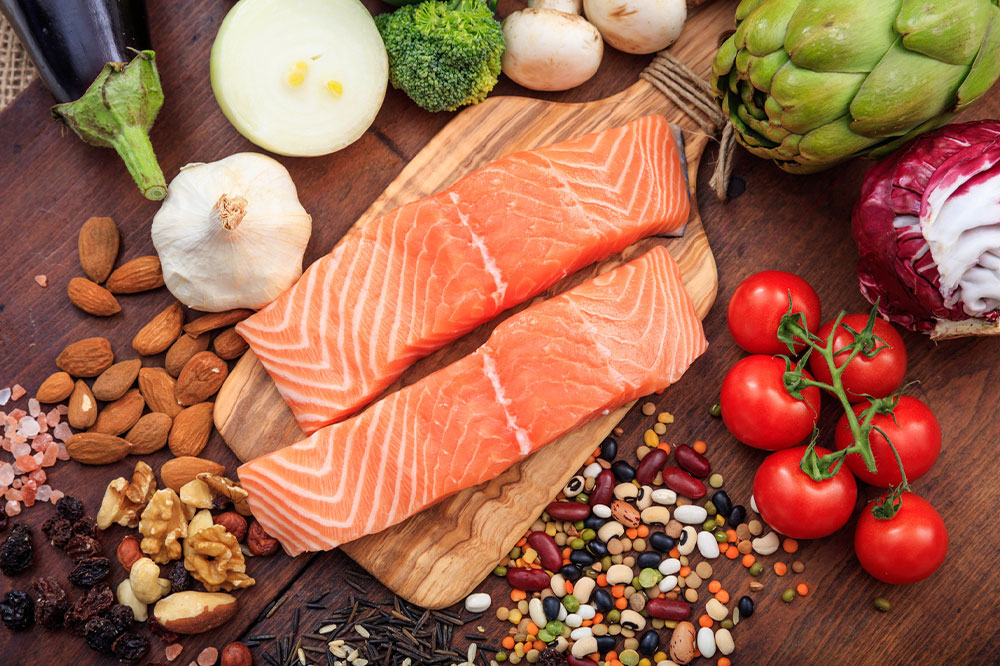
Symptoms, causes, and remedies for ulcerative colitis
Ulcerative colitis is an inflammatory bowel disease that causes irritation, diarrhea, and ulcers in the large intestine lining. The condition affects up to 1 in 250 people in North America and Europe. It has no cure, and most people experience symptoms on and off for life. The symptoms of ulcerative colitis tend to develop over time. Even though it has no cure, treatment can drastically reduce symptoms and offer long-term relief.
What are the symptoms of ulcerative colitis?
Ulcerative colitis symptoms tend to get worse over time. Some of them may be diarrhea, stomach cramping, tiredness, nausea, anemia, fever, mouth sores, skin rashes, joint pain, liver disease, loss of fluids and nutrients, and fatigue.
What causes ulcerative colitis?
While food and stress do not cause ulcerative colitis, here are some factors that can affect your risk of developing the condition:
Age
UC usually begins between the ages of 15-30 years or post the age of 60.
Race or ethnicity
The risk for UC is highest amongst people of Ashkenazi Jewish descent.
Family history
You are at a higher risk of the disease if you have a close relative (parent or sibling) with the disease.
What are the foods to avoid with ulcerative colitis?
Caffeine
Caffeine is found in foods such as tea, coffee, chocolate, and soda and has been reported to worsen symptoms.
Dairy products
While these may not have the same effect on every individual with UC, they can trigger symptoms in some people.
High fiber foods
Foods high in fiber, such as fruits, whole grains, berries, peas, legumes, etc., can increase bowel movement, resulting in cramping and gas issues.
Spicy foods
Foods with hot sauces and hot peppers can cause diarrhea and worsen symptoms for people with UC.
Fatty meat
During UC flares, the body may not absorb fat from meat fully, making symptoms worse.
Nuts and seeds
Nuts, nut butters, and seeds may cause increased abdominal cramping, bloating, and diarrhea during a flare.
What are the foods to eat with ulcerative colitis?
Salmon
Salmon is rich in Omega-3 fatty acids, which may help with digestion.
Eggs
Since eggs are easy to digest and carry many important nutrients, they are an ideal food to eat with ulcerative colitis.
Squash
Although some varieties of squash can be high in fiber, most people with the condition can tolerate squash well.
Avocados
They are rich in nutrients and healthy fats, making them a great food choice for people with ulcerative colitis.
Fluids
Since one of the most common symptoms of UC, diarrhea, can lead to dehydration, it is important for people with it to drink plenty of liquids.
How is ulcerative colitis treated?
There’s no cure for UC, but healthcare providers may use one of these approaches depending on the severity of each case:
Creating a meal plan
Creating a daily meal plan to avoid inflammatory foods can help put UC in remission for people with mild to moderate cases.
Oral treatment
Doctors may prescribe various types of oral treatment to calm inflammation in the large intestine, reduce swelling and let the tissue heal.
Surgery
In case of complications or more severe symptoms like bleeding or abnormal growths, doctors may prescribe surgery such as a Proctocolectomy or Ileostomy.
What are the natural remedies for ulcerative colitis?
There are several natural treatment options for people looking to manage UC:
Probiotics
They improve the growth of healthy bacteria in the gut and can be found in foods like yogurt, kombucha, and some cheeses.
Herbal treatments
Supplements like aloe vera gel and wheatgrass juice may help provide antioxidants and aid the immune system in avoiding inflammation.
Since every body is different, it is important to speak to a healthcare provider before starting a treatment plan (whether natural or prescriptive) to create one that works best for them.




